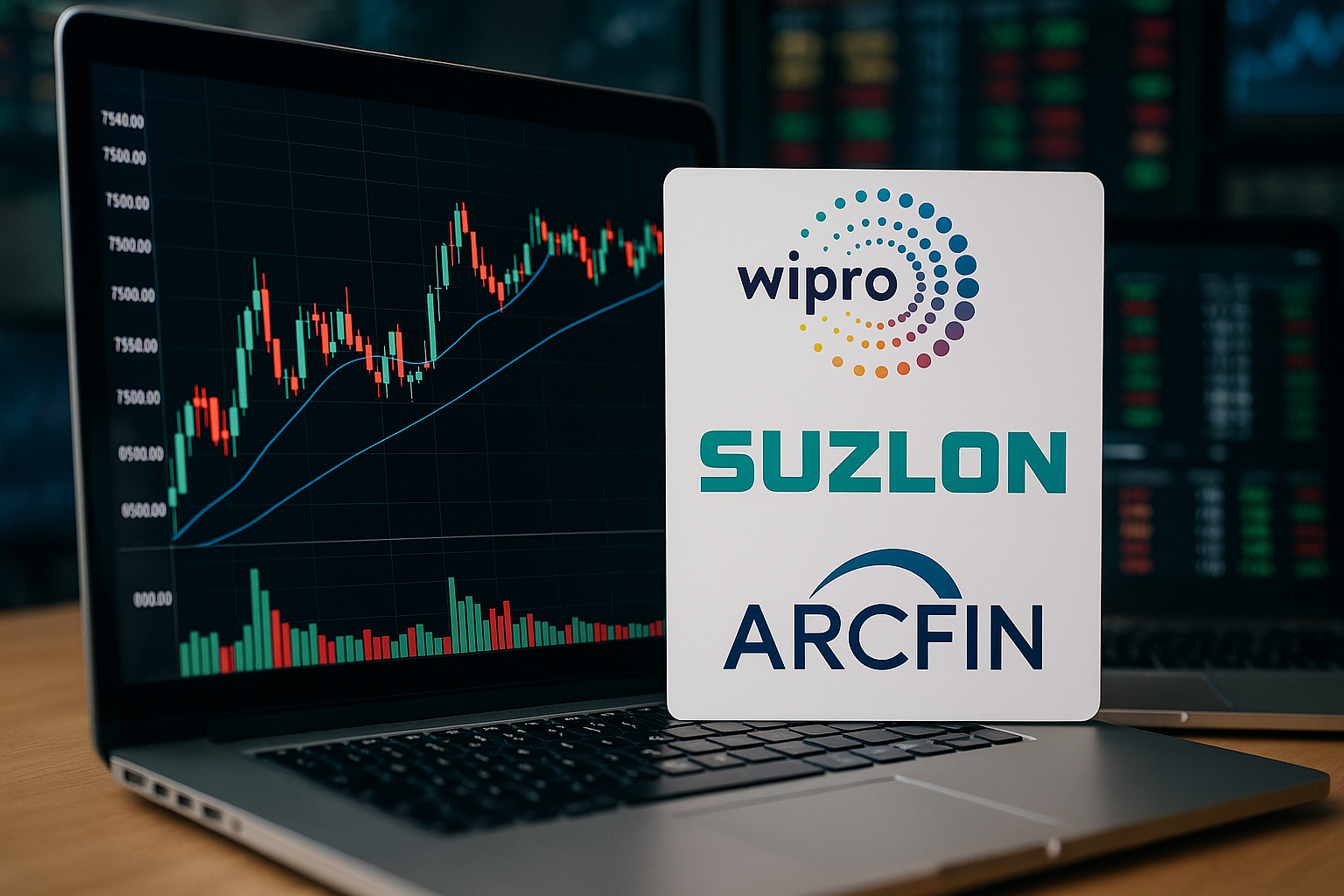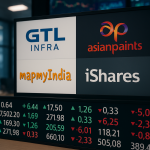Institutional investors make significant moves in Suzlon, Wipro and more as FIIs, DIIs, and mutual funds reshape market sentiment.
Market Overview
In the day’s trading action, institutional players acted decisively across various segments, reflecting increased faith in both cyclical and blue-chip stocks. The front runner was Suzlon Energy Ltd., which was the top stock on the National Stock Exchange (NSE) and Bombay Stock Exchange (BSE) by volume as well, as well as value. Along with Suzlon, Wipro Ltd. and Srigee Infrastructure were the other marquee names that garnered significant block trades, indicating changing allocation amongst foreign portfolio investors (FPIs), domestic institutional investors (DIIs), anchor investors, and mutual funds.
Key FII Transactions
Foreign institutional investors demonstrated a strong buying bias in Suzlon Energy shares at a uniform price of ₹66.05.
- Goldman Sachs Funds – Asia Equity Portfolio led the pack with a hefty purchase of 58.29 million shares.
- Societe Generale followed with a buy of 7.39 million shares.
- Morgan Stanley Asia Singapore Pte added 3.03 million shares to its books.
- Goldman Sachs (Singapore) Pte closed the FII buying list with 1.51 million shares.
Meanwhile on the BSE, Vikasa India EIF I Fund – Incube Global Opportunities exited its Srigee Infrastructure holding by offloading 54,000 shares at ₹287.82, signaling a modest profit-booking move in the construction segment.
DII Activity
Domestic institutional investors were active across two major names:
- Wipro Ltd. witnessed a split outcome: the Azim Premji Trust sold 202.3 million shares at ₹250.00, while Hasham Traders stepped in to buy 119 million shares at the same price. Later, Prazim Traders further added 59.5 million shares, reflecting confidence in the IT heavyweight’s near-term outlook.
- Suzlon Energy saw Tanti Holdings Pvt. Ltd. trim its stake by selling 66.98 million shares at ₹66.05, followed by Vinod Ranchhodbhai Tanti exiting 52.82 million shares, as part of a broader DII rebalancing.
Anchor Investor Moves
Several anchor investors adjusted positions in both large-cap and mid-cap names:
- Arcfincap Ltd.’s Hemali Pathik Thakkar sold 28 million shares of Arcfincap Finance at ₹1.54, taking profits after the recent listing surge.
- Jai Deep Sampat seized the opportunity to buy 1.51 million shares of Suzlon at ₹66.05, positioning for a rebound in the renewable energy segment.
- In the agrochemicals space, Balaji Agencies sold 650,000 shares of Kisan Mouldings at ₹41.24.
- Ontic Pharma attracted Ramesh Chepuri, who bought 458,625 shares at ₹0.80, reflecting interest in specialty chemicals.
- Shalu Aggarwal acquired 150,400 shares of LICL Finance at ₹64.47, betting on the non-banking financial company’s credit-growth story.
Mutual Fund Movements
Mutual funds displayed confidence in Suzlon’s recovery story, accumulating sizeable stakes:
- Motilal Oswal Mutual Fund bought 45.42 million shares.
- Aditya Birla Sun Life Mutual Fund added 30.28 million shares.
- ICICI Prudential Life Insurance increased its holding by 16.96 million shares.
- Sundaram Mutual Fund bought 7.57 million shares.
- Edelweiss Mutual Fund joined the buying trend with 5.91 million shares.
The collective 105.14 million shares acquired by MFs underscores a broad-based bullish stance on Suzlon’s medium-term prospects.
What This Means for Investors
- Renewable Energy Focus: The concerted buying in Suzlon by FIIs, DIIs, anchor investors, and mutual funds highlights growing institutional appetite for renewable energy plays.
- IT Sector Rotation: The split DII activity in Wipro suggests a tactical reallocation of funds, likely driven by quarterly earnings anticipation.
- Mid-Cap Potential: Selective anchor trades in names like Arcfincap and Kisan signal continued interest in mid-cap stocks with turnaround potential.
As front-ranking deals keep dictating market mood, retail investors can look to capitalize on areas where institutional investment is increasing. Volatility is still a consideration; it is wise to watch out for the next set of corporate numbers, policy statements, and external triggers before investing fresh money.





